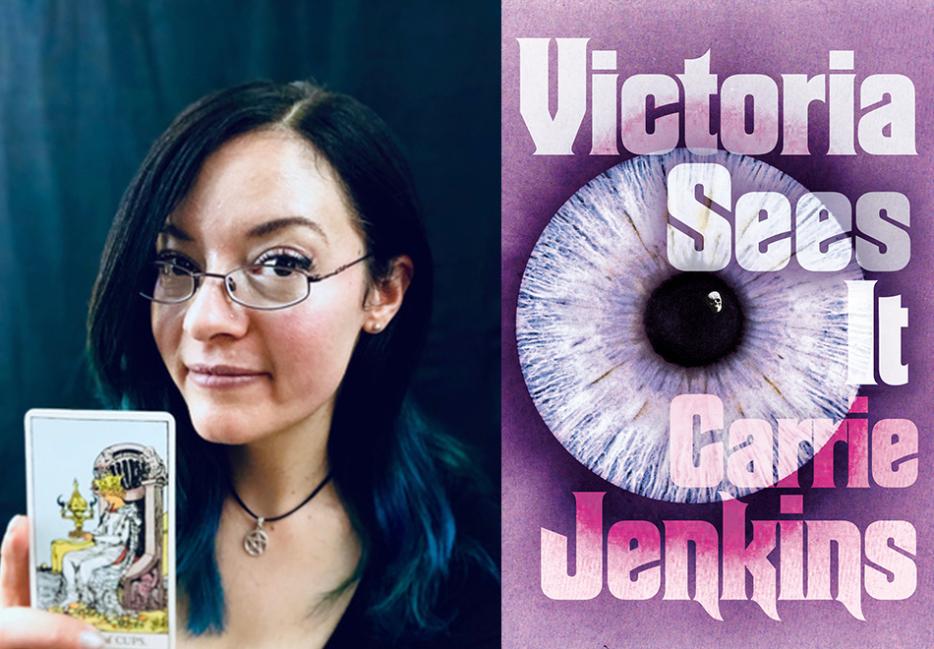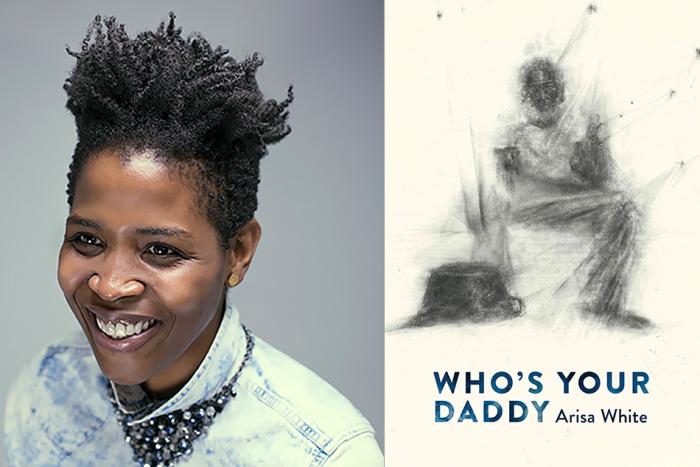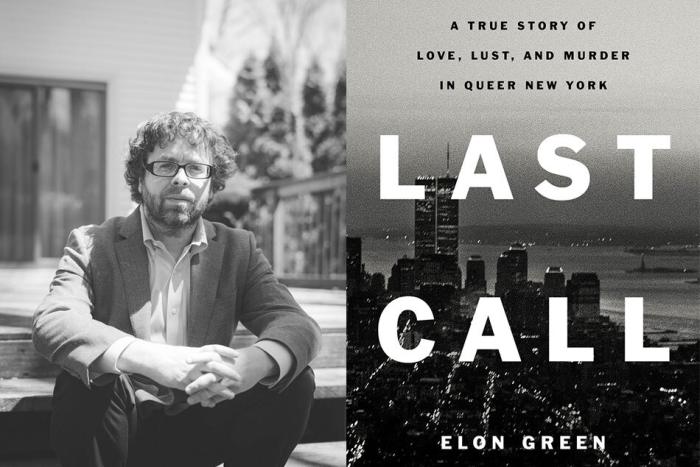Deb sees the world as Victoria sees it. Then, one day, in the middle of the Cambridge academic term, Deb is gone—as though she never existed at all.
Victoria Sees It (Strange Light) is the debut novel from Carrie Jenkins, whose previous and ongoing scholarly work (she is Canada Research Chair in Philosophy at the University of British Columbia) wrestles with love, relationships, and the systems whose gravities shape and deform these bonds. Turning the lenses of this formidable apparatus to fiction, Jenkins now casts an experienced, jaundiced eye upon how harrowing a horror academia can be for any young person—particularly for a woman whom the institution’s exploitative logics have deemed is both sufficiently attractive, and sufficiently vulnerable, to fall within the field of its predations.
The novel follows Victoria’s isolated childhood into her friendship (and perhaps tender first love) with fellow college student Deb—only to wrench that rare and delicate connection away, apparently without explanation. The lady vanishes, and our scholar-detective is left to sift a proliferating, senseless collection of clues—glittering baubles and sinister graffiti littering campus, ancient codices and useless secret societies for the idle rich, a helpful police-officer-turned-love-interest, lubriciously assiduous professors—that cannot seem to be made to cohere into any reasonable whole.
It is an audacious, unsettling book, culminating in a series of dark twists that ratchet its initial intrigue towards a neo-gothic crescendo of madness and paranoia, as Victoria struggles to orient and assemble meaning while captive in a world whose categories and coordinates have been rendered deliberately unfair and malevolently confused.
There is, Jenkins suggests, more than one way for women (especially poor, queer women) to be made to disappear.
Anthony Oliveira: Thanks so much for chatting with me, and for this book. I think I am firstly curious about how you would you describe its project—how do you see it?
Carrie Jenkins: Well, I think it's a psychological thriller, though it took me a while to arrive at that. [laughs] Thematically it’s concerned with isolation and mental health, and the gendered aspects of both of those things. It's concerned with academia and power. And it's trying to do all this in a way that's quite intimate and humanizing.
I really wanted Victoria to be able to speak to us directly, and to as it were trap people in her head with her, so that we get a perspective on the things that she struggles with, including mental health. And other people's conceptions of that, and the isolation that results when those conceptions do not work.
I wanted her to speak from her real experiences of those things, and humanize them. A lot of writing about mental health fails to give us the first-person perspective; we have a lot of third-personal, diagnostic, medicalized, language, which can be useful in certain contexts, but there is something that is really missed by the wayside, which is the humanity of living in a world where you and/or it don't quite line up with expectation.
What, to your mind, were the seeds of this project? Or maybe another way: at one point, you say “Books are just mirrors.” What is this book mirroring?
The first sentence, not the prologue, but the first sentence of the main book, “My mother stopped talking when I was born,” was there very early on, in the first pass of the first drafts. That was the origin, in my head, of Victoria's voice. A lot of what followed from there was just me figuring out why—what does that mean, what is that sentence tapping? This is one of my first attempts at writing fiction at all, and it began with that sentence and Victoria's voice.
I wanted to consider this idea of cyclical progress, or lack of progress—things changing but still staying the same. I return endlessly to this theme of something shifting or changing—perhaps generationally, or over time, only to discover that it hasn't really shifted at all. And passing this broken cycle on to the next generation.
The way that I ended up writing Victoria, the protagonist… her life is following my life around, to a large extent. So there are a lot of twisted mirrors of places and situations that I've been in or been familiar with, that she then goes into and now has to deal with. Fairly early on I started trying to lean into trusting my subconscious or semi-conscious processes to come up with something that was, in many cases, sort of reality-adjacent.
And I ended up with this twisted, semi-digested, semi-conscious horror, this grotesque version of my reality or real situations, like a funhouse mirror. I feel like Victoria, in a number of ways, is a case of but for the grace of fate or whatever, go I—she is in really bad situations that I, very easily, could have ended up in. This book is full of the mirrors of my world and my reality as I've understood it, or as I understand it.
The obvious proximity to your own life—the specificity of sight and smell, is very present and striking in the book, even without flipping the cover to compare Victoria’s journey to your own bio. Was that hard? Deciding how much of your life to let seep in, when the character’s biography is so close to your own?
It is a weird experience because partly it made things so much easier to just let Victoria follow me around, but it is funny how the memory betrays you—my copy editor found many moments where, for example, a specific song wasn’t released that year, etc. Which was itself interesting, but it was always intentional that Victoria does a lot of the things that I have done, but is not me. From the first sentence, “my mother stopped talking when I was born,” that's not true of me. My mother didn't stop talking when I was born. It became about just letting these, these things, twist, twist themselves, and then land where they wanted to land. Victoria is me—and of course she isn't.
This text is so much about institutional violence, and I wanted to ask specifically about the book’s interest and horror at the violence of academia. What is this book saying about the sort of insidious and ancient evil of the academy? That agelessness, specifically, seems to obtain when you talk about Cambridge especially—these august and enduring edifices…
It is so strange—right, because that's where a lot of their power comes from—that sense that these forces have been there, for all intents and purposes, forever, without possibility of changing. This is one of those cyclical things, the book’s themes constantly feeling like, oh, this time academia has solved its problems, and now there is no more racism and sexism and colonialism. And of course, that's never what's actually happened; these cycles of apparent progress enter a retrograde phase, and those trapped in them wonder whether you're really going in a straight line, or just round and round in circles.
I think everyone who has been in an academic department meeting knows that feeling: that it's just a dance, you just go around, around the steps. And there's very little sense of possibility of ever breaking out of that. I really had the sense, when I was 18 years old—very bright-eyed and bushy-tailed and naively optimistic—I really did believe some of the we've sorted out some of the problems in academia now, and it’s going to be much better. We were supposed to be inheriting a much better academic institution, but…
You have a scene in which a senior female scholar dismisses a very urgent concern from a student and then turns around and gives a lecture about how things are not as sexist as they used to be…
Yeah, and there is probably some truth in that too, right, because she is probably in her mind comparing it to something much more explicit—literally being told you cannot be here, the kind of overt sexual harassment in front of everybody that is relatively rare now, thank goodness, although not completely eliminated.
But you didn’t solve the problem, you didn't know to look below the surface and understand the swirling undercurrents of it, and how those go around in circles, even though it looks like the river is flowing. You didn’t consider how you can get caught up and sucked under.
As much as the academy emerges as this crushing force in your book, the literary canon does too. There is a horror on the part of Victoria, who is constantly quoting and footnoting the canonical—usually male but not always male—writers and actually complains at various moments that she can't stop doing that.
Right, and it's not entirely academic stuff, because there's also quite a bit of pop culture too, but yes, Shakespeare, Sherlock Holmes… it is a lot of figures, I think, of the hyper-rational. I don’t know—I’m just the author—but I feel like one of Victoria's obsessions, one of the things she struggles with, is understanding how to manage emotionally within her world.
And so she uses “hyper-rational” thinking as a form of anesthetic, sometimes, and the canon provides for that very readily: it provides lots of logic puzzles, and problems that you can get completely lost in if you want to write without thinking too much about the actual world and its problems. So there can be this avoidance tactic. To a large extent, academia can do this, writ large, with the world's problems, but also individuals can do this with their own lives—you can send yourself down a rabbit hole of academic inquiry in order to avoid looking at something you really don't want to look at.
I think Victoria does some of that, and I think that the canon of academic philosophy lends itself to her as a mode of doing that. A lot of her choices speak to that same inclination: to just wrap yourself up in the intellectual life.
One of the figures you use throughout as the model of how that isn't going to work is Isaac Newton—there's the version of you that wants to pursue the rational and that wants to pursue the science, but who is compelled simultaneously compelled to pursue something that exceeds the rational, that reaches beyond it, and is in some ways destroyed by it too.
Absolutely, yes—I’m absolutely personally obsessed with Isaac Newton. He does represent that kind of sanitizing in the rational, in the scientific, to the detriment of the attempt to find something that is actually better or beyond that. But also was at peace with that irreconcilability; he thought the search for these mystical, magical things was just part of understanding the universe, understanding creation. It was all one project for him.
I’m fascinated by that. There are a whole bunch of Easter eggs in Victoria Sees It, and lots of them have to do with what look like complete sets that are actually missing a piece, or sequences that actually the repeat, but then get thrown off the cycle in some way. I don’t know if this counts as a spoiler or not…
[laughs] I think you're the one who decides that…
So Victoria goes searching for her missing friend, and she goes to four different locations which are symbolic of four elements of earth, air, fire, and water. And does not find what she's looking for in any of them, and this fifth element of the missing piece of the puzzle keeps haunting her.
One of the things I'm wrestling with in the book, wrestling with rather than trying to say, but specifically wrestling with is that question of the fifth piece. Is it real? Is it something we could actually find? Is it something that we've written out of the history, because it wasn't tidy enough to be squared away with the other four?
And if that is something we're doing because we're scared of what it would be if we saw it, if we found it, if we acknowledged it—and what kind of shape would the search for it take? These are the things that troubled me, and which found their way into various thematic structuring principles of the book that are not supposed to be highly visible in the final version. They're more like the process left behind, as a residue.
When you mention edited texts and sanitized versions of biographies and missing pieces (as with, for example, Newton), my mind turns to your book’s queer themes. We see your protagonist react almost physically when the word “lesbian” drops, for example. I just wanted to ask how you think the queerness of the text hooks into that larger theme of the missing and unspoken, or how much you were thinking about that as like a major motif in the piece.
As I say, I'm just the author, and I don't really claim authority on how important it is as a theme, but as I was writing it, it was really just how it is, this is what and how that character is. But I think it also helped to flag more of the toxicities, and the unspoken parts of what was going wrong. When the word “lesbian” comes out for Victoria, for example—the only time she's heard that word is kids being bullied at school. That was just a term you would call someone when you're putting them through a kind of social death. So she's never really had to come to grips with the possibility that that's a word that applies to her for real and it's not a slur.
And that there's parts of her, her relationship with her friend before the friend goes missing, that are clearly suggestive of a bond that could be queer, but she hasn't been given tools for thinking about that as an option. And it really literally takes a woman coming up to her, and very explicitly saying, I'm asking you on a date now, for the penny to drop.
And as I was working with the book I realized that it gave me useful material for revealing some more of the ways in which this stuff is pretty toxic—the gendered, sexist, misogynistic aspects of the character’s world come through much more explicitly. With the character’s queerness, it becomes almost about the silence around it. That's the clue, and the fact that she doesn’t talk about it, and that she can't even really hear the word lesbian without viscerally flinching. The institutional oppression is almost secondary in that case; it becomes a function of hetero-normative patriarchy writ large.
When you look back on it is, was this a detective story? Was this a ghost story? It is so much about hauntings, but also so insistent on finding its way through to the rational. What, when you look at it, what was this book about?
It is funny but honestly, the kind of book that I like to read is not very much like this one. But there is a kind of book where I don't exactly like to read it, but I do feel this immense sense of relief when I get to the end of a book and I feel like, oh, somebody else gets it as well. And so I hope it's one of those books where—and I don't think this will be a universal feeling—but where the right people, when they read it, and get to the end, will think, oh, someone else notices this stuff, oh, it's not just me, which is kind of like the relief I get from reading Kafka or something like that.
I have to say, my experience with academia was not dissimilar to Victoria’s and perhaps yours, and there were many moments in reading in which I thought, oh my god, I have had these exact thoughts, I have seen this exact scene, I have witnessed and had this breakdown.
I think that’s sort of everybody's autobiography that's been through that particular wringer, through this process of what I think is really fundamentally a pretty toxic institution. These are funhouse mirrors that you don't really have to twist very much to get to their horror story.
But I think it also speaks to people who have not been in that situation: to shine a bit of a light on some of this stuff that happens in usually quite closed rooms, and behind closed doors. Some of the ways that academia is abusive and toxic tend to be pretty hidden, and I'm not sure how much awareness there is of the intricacies of how it functions.
Your refrain throughout is why is no one noticing that this is happening—there is a way that these institutions, the operations of this whole universe of power mobilize to gaslight you, to leave you wondering: how is this happening to me and why am I being made to feel like the mad one.
Yes, towards the end of the book these themes of madness erupt: how to deal with yet another imposition of the institution and environment and labels related to Victoria’s state of mental health, and none of the categories are healthy ones for her at all.
I feel very bad for her because she does go through a particularly useless set of mental health professionals; it is possible to imagine very good ones who might actually have been able to help her, but she doesn't meet them and that is unfortunate, but it happens to people—happens to a lot of people. And so, all of the categories that she's offered just do violence to her; they don't support her, they don't help her to understand herself or anything else.
And this only leads to further, and more lastingly permanent, isolation. The universe that Victoria has to live in is very unstable—for her, even basic elements of reality are not really very well-defined, and they seem to be liable to change at any minute.
There is a moment where Victoria says “I am not a misanthrope.” Is this a misanthropic book—is that distinction important to you?
Well, it's not… this is not the view of, like, someone who's a huge fan of humanity. Victoria has got this kind of detached thing going on—she says, and I think she means this, “I didn't have any friends in school, but it’s not like there was something there that I wanted or that I didn't have.” It sounds bad but she didn't actually want that. When she zooms out, she's able to appreciate some of humanity's achievements, but up close everything gets twisted and messed up once you get into the details of how life actually plays out.
And I think there's a feeling throughout of constantly zooming in and out, missing the bigger picture or missing the details or not being able to reconcile the very large and the very small. To her, somewhere in between all of these bits, something is wrong, is missing, with humanity and the universe that it is creating for itself. “Misanthrope” isn’t quite right, but she ends up with this very detached perspective, which I think is probably closer to the book’s own worldview.
This is not a book that is enthusiastic about humanity.






